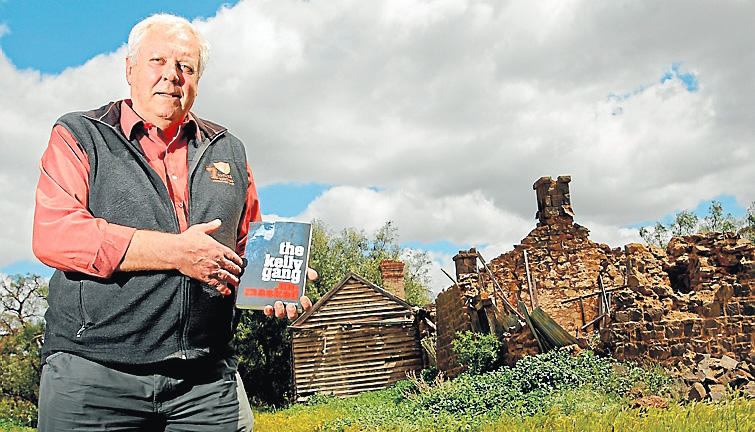THE federal government calls him one of Australia’s greatest folk heroes, but the Bacchus Marsh author of a new book believes new evidence suggests Ned Kelly was a glorified cop killer.
In his latest book, The Kelly Gang Unmasked, Ian McFarlane argues Kelly’s hatred of police was long-standing.
“The Kelly gang has been glorified in movies, books, plays, poems and songs. Many people honestly believe in the folklore version; I don’t agree,” McFarlane says.
“In the pro-Kelly books, Ned is presented as a bonza bloke who was always kind to his mother and always repaid his debts.
“The Ned I found in the archival documents was waving his gun in people’s faces and threatening to ‘blow their brains out’.”
McFarlane, a former investigative journalist who worked for the State Archives for 21 years, argues that missing documents could poke large holes in the Kelly story.
“Perhaps there was a good Ned and a bad Ned in the one person. [But] there aren’t enough personal detail about the man to reach solid conclusions.”
He says 60 or so missing letters, several written by Kelly himself, are believed to include graphic drawings of the gang shooting police and would have highlighted a “hate campaign” against authority.
McFarlane says new evidence in his book, released on November 1, involves previously ignored testimonies.
“I found Constable Alex Fitzpatrick’s plea for a new police jumper to replace the one ruined when Ned Kelly fired three shots at him in 1878,” he says.
“That jumper was being held as evidence. Authors have debated for decades whether this shooting took place. This new evidence seems to prove it did.”
However, it’s claims like this that Gary Dean, of Ned Kelly’s World in Glenrowan, strongly disputes.
“The archival documents he [Mr McFarlane] read are mostly police reports, which would obviously be biased,” he says.
Mr Dean says some documents referred to in McFarlane’s book were “dubious”.
“You have to study all the sources, including newspapers, magazines, letters, unpublished manuscripts, books and, most importantly, oral history.”







